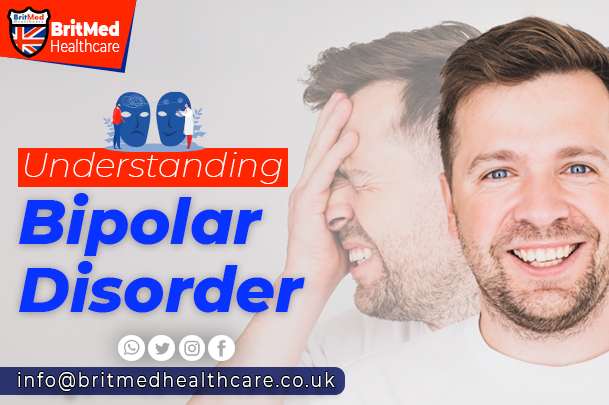Understanding Bipolar Disorder
Bipolar disorder is a mental health condition that affects millions of people worldwide, causing significant distress and disruption to their lives. Despite its prevalence, there is still a stigma surrounding the condition, and many people struggle to understand what it entails. In this article, we will delve into the complexities of bipolar disorder, exploring its symptoms, causes, diagnosis, treatment options, and coping strategies.
What is Bipolar Disorder?
Bipolar disorder is a mood disorder characterized by episodes of mania or hypomania, which are periods of abnormally elevated mood, energy, and activity levels. The condition is also accompanied by episodes of depression, which can be severe and debilitating. Bipolar disorder is often referred to as manic-depressive illness, although this term is no longer widely used.
Symptoms of Bipolar Disorder
The symptoms of bipolar disorder can vary from person to person, but they typically include:
Manic or hypomanic episodes: Feeling extremely happy, energetic, or self-confident, with reduced need for sleep and increased talkativeness.
Depressive episodes: Feeling sad, hopeless, or worthless, with changes in appetite and sleep patterns.
Mixed episodes: Experiencing both manic and depressive symptoms simultaneously.
Psychotic symptoms: Hearing voices or experiencing delusions.
Cognitive impairment: Difficulty concentrating or making decisions.
Causes of Bipolar Disorder
While the exact causes of bipolar disorder are not fully understood, research suggests that a combination of genetic and environmental factors contribute to its development. Some possible triggers include:
Genetic predisposition: Family history plays a significant role in the development of bipolar disorder.
Brain chemistry: Imbalances in neurotransmitters such as serotonin and dopamine may contribute to the condition.
Environmental factors: Trauma, stress, and significant life events can trigger episodes of bipolar disorder.
Diagnosis of Bipolar Disorder
Diagnosing bipolar disorder typically involves a thorough medical and psychological evaluation. A healthcare professional will assess symptoms, medical history, and family history to determine whether the individual meets the criteria for a diagnosis.
Treatment Options for Bipolar Disorder
Treatment options for bipolar disorder include:
Medications: Mood stabilizers, antidepressants, and antipsychotics are commonly used to manage symptoms.
Therapy: Cognitive-behavioural therapy (CBT) and interpersonal therapy (IPT) are effective in managing symptoms and improving coping strategies.
Lifestyle changes: Regular exercise, healthy sleep habits, and a balanced diet can help alleviate symptoms.
Coping Strategies for Bipolar Disorder
Living with bipolar disorder requires a range of coping strategies to manage symptoms and improve overall well-being. Some effective strategies include:
Keeping a mood journal: Tracking moods and symptoms can help identify patterns and triggers.
Staying active: Regular exercise can help alleviate symptoms of depression and anxiety.
Practicing mindfulness: Mindfulness techniques can help reduce stress and improve mood.
Seeking support: Connecting with others who have experienced bipolar disorder can provide valuable emotional support.
Conclusion
Bipolar disorder is a complex condition that requires understanding, empathy, and support. By recognizing the symptoms, causes, diagnosis, treatment options, and coping strategies associated with the condition, we can work towards reducing stigma and improving the lives of those affected. If you or someone you know is experiencing symptoms of bipolar disorder, it is essential to seek professional help from a qualified healthcare professional. With proper treatment and support, individuals with bipolar disorder can lead fulfilling and productive lives.
References:
https://www.who.int/news-room/fact-sheets/detail/bipolar-disorder
https://www.ncbi.nlm.nih.gov/books/NBK558998/
https://ip-psych.com/understanding-bipolar-disorder/
Websites:
Britmed Healthcare: https://britmedhealthcare.co.uk/
Nightingale Hospital: https://www.nightingalehospital.co.uk/
Top Doctors: https://www.topdoctors.co.uk/doctor/ahmed-el-missiry
You can also book, Contact us on WhatsApp 08009708017




